You don't need to fly to Norway to view fjords. Just go to this Alaskan national park
Americans who want to witness the awe-inspiring vistas of fjords may think they need to board a plane to Norway or Greenland. But that’s not necessary.
People can put away their passports and go to Kenai Fjords National Park in Alaska to see the narrow, glacier-cut waterways flanked by steep cliffs.
That’s not all the national park has to offer. To put it aptly, that’s just the tip of the iceberg. Kenai Fjords has an incredibly diverse and unspoiled landscape, including mountains, a rugged coastline and glaciers.
“I think we've got it all in Fjords, you know?” said Peter Christian, chief spokesperson for Public Affairs for the National Park Service’s Alaska region.
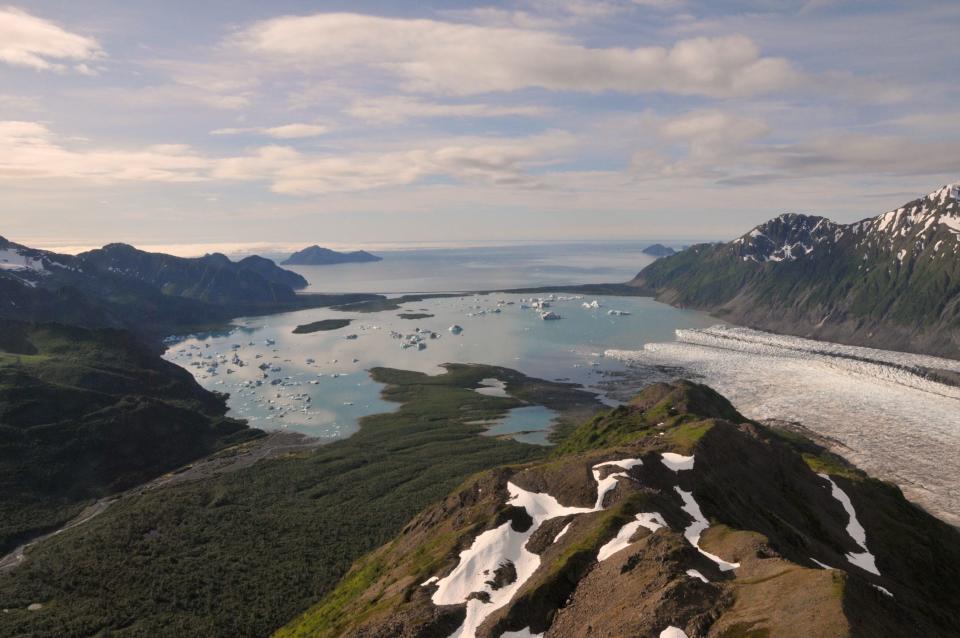
“I mean, when you get out on the water in one of the many tour boats in Kenai Fjords, it's like this stunning mix of the ocean coastline, and then these mountains just rise straight up out of the water and create these fjords,” he said. “Then of course ... sitting at the head of all those valleys are these beautiful glaciers. So it's really quite a stunning place to see.”
Here’s what travelers should know about Kenai Fjords, the latest national park in USA TODAY’s yearlong series.
What is special about Kenai Fjords?
Kenai Fjords' stunning mix of ice meeting the sea meeting the land is what makes the park stand out. Wildlife such as whales, porpoises and puffins – arguably the park’s iconic bird, he said – thrive in the park’s icy climate.
The raw natural beauty of Kenai Fjords is a spectacle in itself, but the icy park also has “become the place where you can bear witness to climate-change-driven impacts,” Christian said.
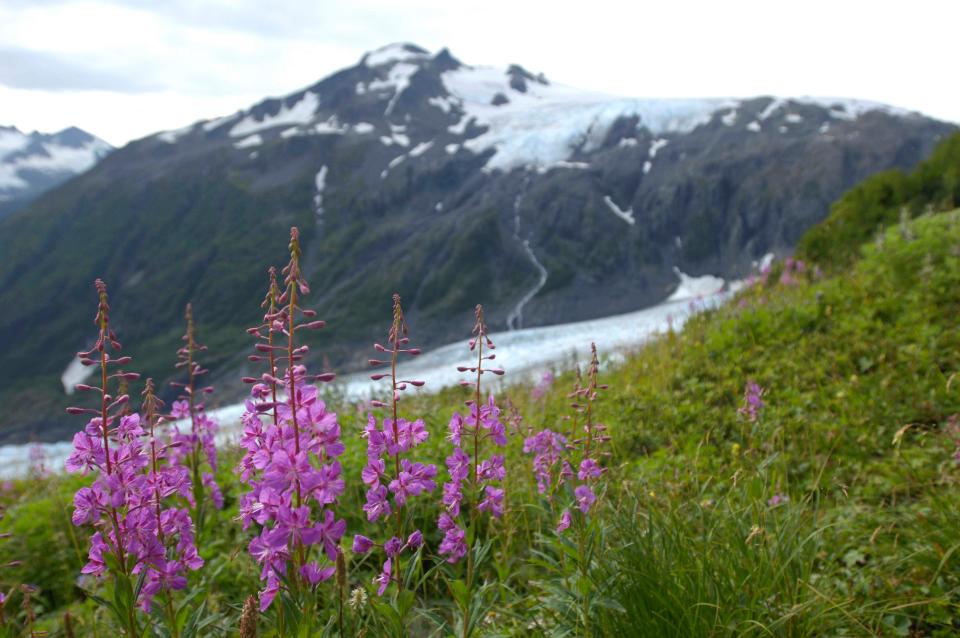
Alaska is warming twice as fast as the lower 48 states, according to a policy brief from the Harvard Kennedy School's Belfer Center for Science and International Affairs, and Kenai Fjords is no exception.
“It really is a place where you can see climate change in action, and probably the most iconic is our disappearing glaciers,” Christian said. “For the most part, some glaciers are advancing, but the vast majority of them are shrinking, and in Kenai Fjords, you can just see that right up close and personal.”
More than 40 glaciers reside in Harding Icefield, the nation’s largest and one of the few remaining icefields.
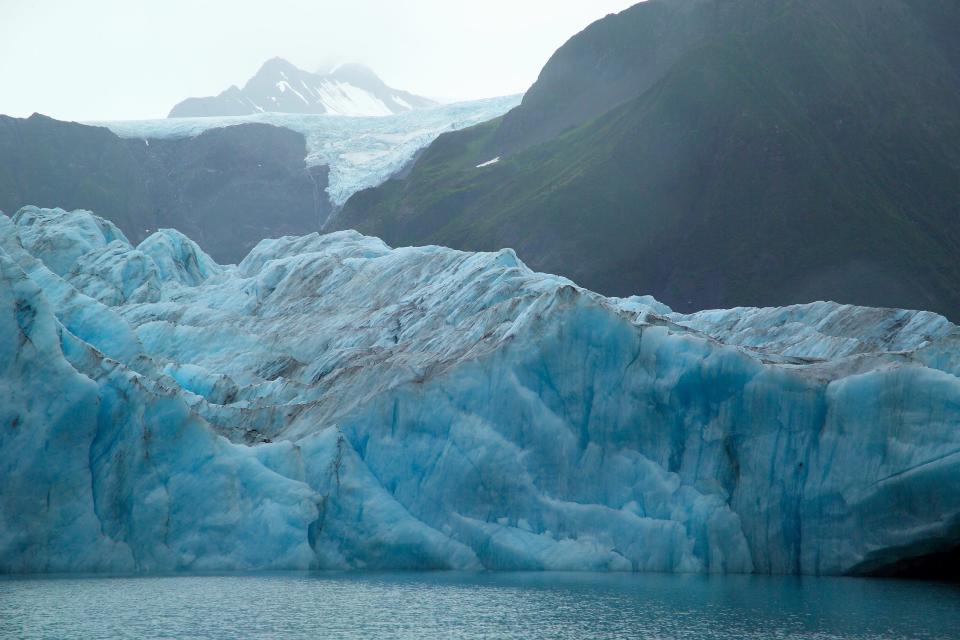
What is the closest city to Kenai Fjords National Park?
The port city of Seward is a 15-minute drive from Kenai Fjords. The park also is close to Anchorage, just 2½ hours by car.
“It's on the road system, and so it's less expensive to get to and you can do it in a day, which you can't say for a lot of Alaska's national parks,” Christian said.
But visitors should keep in mind that the park is usually inaccessible during winter.
How do you get to Kenai Fjords?
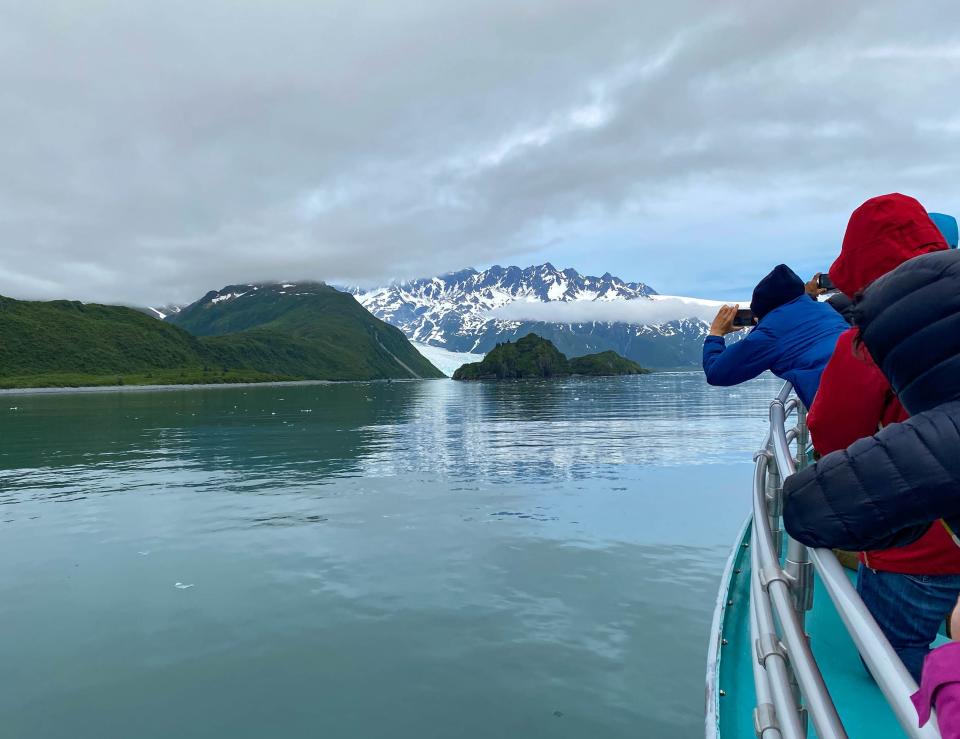
More than half of Kenai Fjords is covered by ice, so much of the park only be reached only via air or water. This means the best way to experience it is by boat. Through a half- or full-day boat tour, visitors can see the tidewater glaciers, fjords and abundant marine life up close. Think orcas, sea lions, porpoises and more.
Just remember to pack a windproof and waterproof outer shell. It’ll be chilly, even on the sunniest of days.
Can you drive through Kenai Fjords?
Visitors can’t drive through the national park.
But there is one road-accessible part called Exit Glacier, and it’s free to visit. From the visitor’s center, people can take a 1-mile wheelchair-accessible trail called Glacier View Loop Trail to a lookout point over the icy blue wonder. There are also more difficult trails people can take from here, if that’s their thing.
Spectators may notice markers showing the recession of the glacier over the past 120 years, a direct result of climate change. "People can find their birth year and just imagine, you know, when you were born where the glacier was, and it's a really striking way of understanding how quickly things are changing here.”
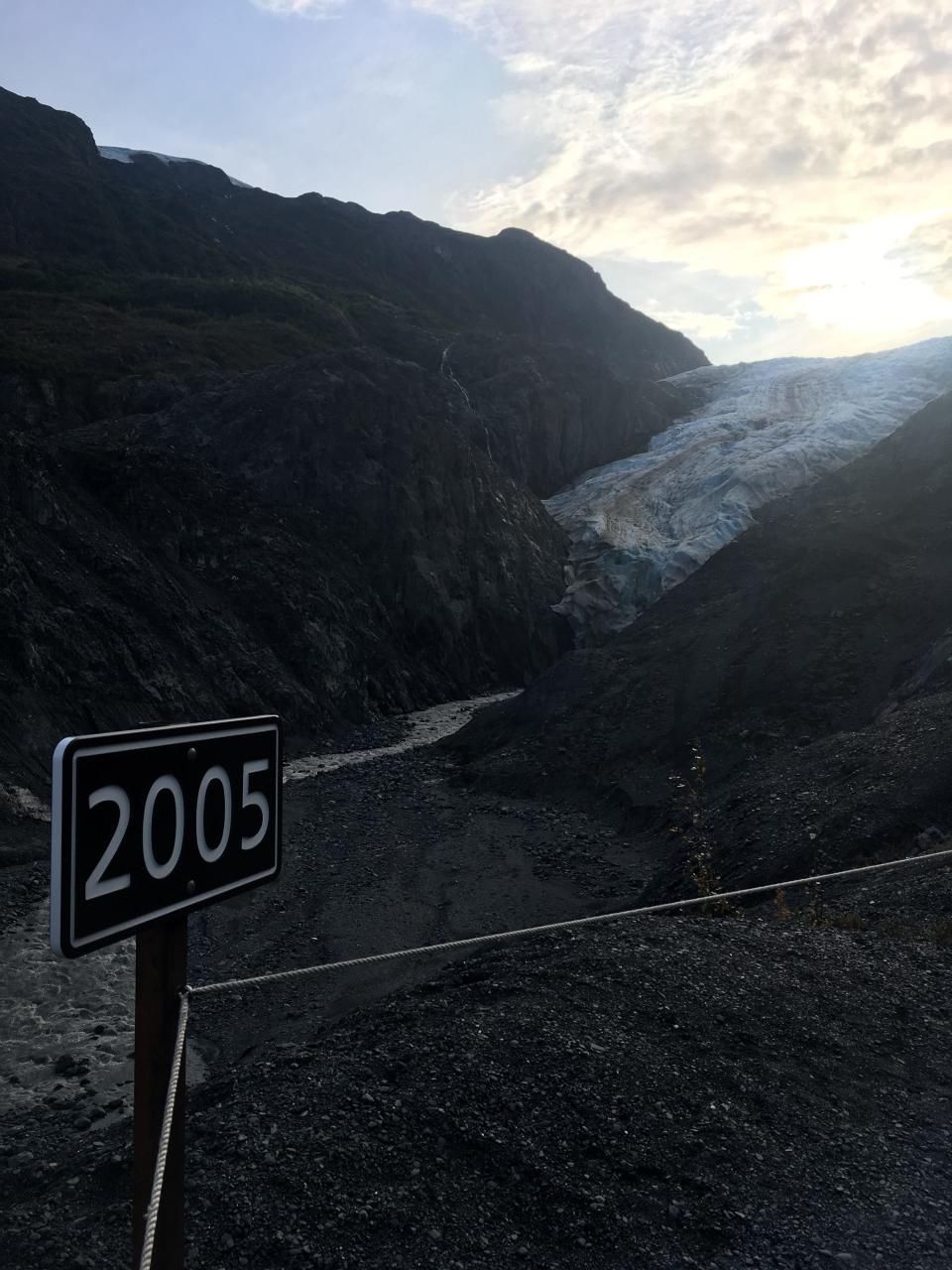
Can you see northern lights in Kenai Fjords?
There’s a chance, Christian said. Those who visit on a clear night from late September to March may get to witness the dancing, colorful waves.
Who are the Native people of Kenai Fjords?
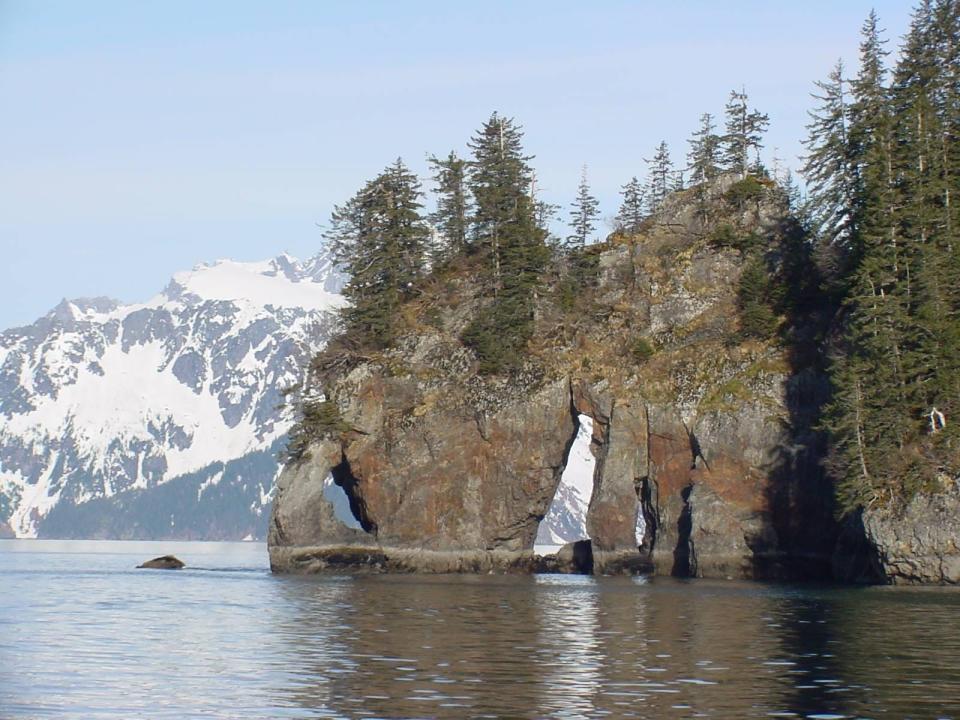
The people who have lived in the outer Kenai Peninsula for many years call themselves the Sugpiaq and are related to the Alutiiq. The Sugpiaq are known as maritime people who hunted and sustained themselves off the bountiful coast.
“They relied and still rely on the resources that the fjords so productively have, an abundance to maintain their way of life,” Christian said. "And it's, of course, all interrelated with the sea and the wildlife and, of course, the glaciers, the mountains and the forests.”
This article originally appeared on USA TODAY: You can only really see Kenai Fjords National Park by boat, but it's worth it

